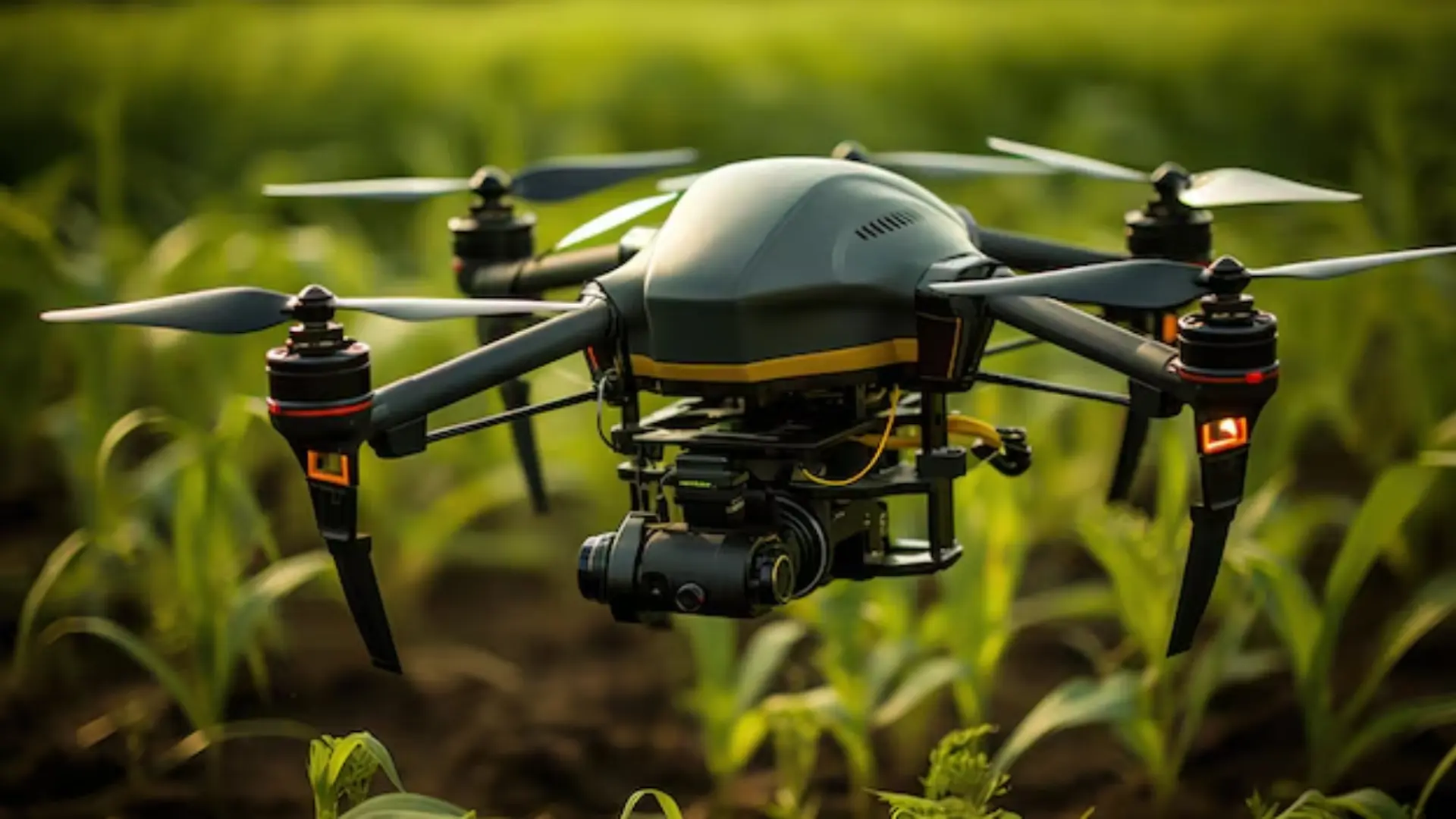
August 24, 2025

With the development of new technologies, precision agriculture has been an innovation in the agricultural industry. Precision agriculture allows farmers to monitor and improve operations using modern technology like sensors, data analytics, and automated control systems.
This revolutionary method guarantees the most efficient use of water, energy, and nutrients while increasing productivity and supporting sustainable practices.

Companies like Trolmaster, Climate Control, and Rhythm CSS are central to this evolution. No matter the size of the greenhouse or commercial business, these technologies allow growers to establish the perfect circumstances for their crops. The possibilities are endless, from real-time monitoring of CO2 levels and humidity to adjustable irrigation cycles.
What is Precision Agriculture, and Why Does it Matter?
Precision agriculture is like having a crystal ball for your farm. You use data-driven insights to make well-informed judgments rather than speculating what your crops require. It's not harsher but wiser farming. By utilizing cutting-edge instruments and technologies, growers may maximize their resources, cut waste, and boost yields.
Think of it this way: why water an entire field when only certain areas are thirsty? You can more effectively identify and meet your crops' precise demands with precision agriculture. This is why it's important:
At the forefront of agricultural technology, TrolMaster provides sophisticated irrigation and environmental control systems suited to growers' requirements ranging from hobbyists to large-scale enterprises. Growers can easily optimize their operations using TrolMaster's user-focused solutions, which combine automation, remote access, and modular customization.

| Product Line | Primary Function | Best For |
|---|---|---|
| Hydro-X | Environmental control | Lighting, HVAC, CO2, Humidity |
| Aqua-X | Irrigation management | Water quality and scheduling |
| Carbon-X | CO2 safety and regulation | CO2-enriched grow environments |
Without some very cool technology, precision agriculture would not be possible. The leading players who made it all possible are as follows:
1. Sensors
Consider sensors to be your farm's eyes, ears, and nose. They measure everything from nutritional levels to soil moisture. Some even keep an eye on the weather. With the ability to SMS your crops, who needs a weather forecaster?
Benefits:

2. Satellites and Drones
You can fly over your fields instead of walking them. Satellites and drones offer in-depth photos of your farm, showing trouble spots you might overlook on foot.
Applications:
3. GPS and Self-Driving Devices
Say goodbye to guesswork. Robotic systems and GPS-guided tractors guarantee straight rows, accurate planting, and productive harvests.
Benefits:
4. Analytics of Data
The foundation of precision agriculture is data. You may transform unprocessed data into useful insights by using robust analytics tools.
Important attributes:
| Feature | Traditional Farming | Precision Agriculture |
|---|---|---|
| Resource Usage | Blanket application | Targeted application |
| Decision Making | Based on experience | Data-driven |
| Environmental Impact | Higher runoff and waste | Reduced waste and impact |
| Yield Potential | Moderate | Higher |
Climate Control Systems Inc. has been at the top of greenhouse automation for almost 40 years, providing innovative solutions that revolutionize producer crop management. By incorporating intelligent technology into water treatment, irrigation, and climate control, the company has enabled greenhouse operators to lower expenses, increase yields, and adopt sustainable practices.

Core Innovations Driving Agricultural Efficiency
| Product | Key Benefits | Features |
|---|---|---|
| Fertigation Manager | Reduced fertilizer and irrigation costs, increased crop yield | Customizable feed formulas, remote management via computer or mobile |
| Climate Manager | Optimized heating and cooling costs, enhanced environmental control | Centralized management of vents, shading, misting, lighting, temperature, and humidity |
| Ozone Pro | Cost-effective water recycling, environmental protection | Runoff water sterilization and reinjection of nutrient-rich feed formulas |
Data is the secret sauce of precision agriculture. Imagine being a farmer with a crystal ball that tells you which crops are thriving, which need a little TLC, and where pests might strike next. That's the power of data.
Here's how it works: sensors, drones, and satellites collect mountains of information about your farm. Then, the software crunches the numbers to give you precise, actionable insights. It's like having a personal assistant for your crops (minus the coffee runs).
How Data Boosts Crop Yields:
| Aspect | Traditional | Data-Driven |
|---|---|---|
| Fertilizer Use | Blanket spread | Targeted application |
| Water Use | Over-irrigation | Optimized schedules |
| Pest Control | Reactive | Predictive |
| Crop Yield | Moderate | Maximum potential |
Rhythm CSS is revolutionizing fertigation with its Advanced Fertigation Systems (AFS), a range of adaptable systems intended to maximize nutrient delivery and boost operating efficiency. Rhythm's technology gives growers unparalleled control, adaptability, and scalability, from inline injection to batch systems.
| Feature | Benefits | Details |
|---|---|---|
| Batch Systems | Scalable for medium to large operations | Single Batch: Compact, movable skids in 200–500 gallons. Multi Batch: Handle larger volumes with simultaneous recipes. |
| Deconstructed Skids | Space-efficient, customizable layouts | Options ranging from 55 to 500 gallons to fit unique facility needs. |
| Day Storage | Ideal for high-frequency feeding styles | Prepares reservoirs in advance, supplementing the main AFS system. |
| Inline Injection | Direct, precise nutrient delivery | Skid-based for maneuverability; Dosatron controller option available. |
| Category | Benefits |
|---|---|
| Healthier Soil |
|
| Cleaner Water |
|
| Biodiversity Boost |
|
1. What is precision agriculture? Precision agriculture uses advanced technology, such as sensors, data analytics, and automated systems, to monitor and optimize farming operations. It allows growers to make data-driven decisions that improve resource efficiency, reduce waste, and boost crop yields.
2. How does precision agriculture help the environment? Precision agriculture reduces water waste, chemical runoff, and energy consumption by optimizing resource use. It helps maintain healthy soil, cleaner water, and improved biodiversity, contributing to a more sustainable agricultural system.
3. What role do companies like Trolmaster, Climate Control, and Rhythm CSS play in precision agriculture? These companies provide advanced environmental control, fertigation, and irrigation technologies, enabling growers to monitor and manage their crops more efficiently. Their systems help improve yield, reduce operational costs, and promote sustainability in farming practices.
The approach to farming has undergone an important shift with the emergence of precision agriculture, driven by innovative technologies developed by businesses like Trolmaster, Climate Control, and Rhythm CSS. Growers can now optimize all facets of their operations, including fertigation, climate management, and irrigation, by utilizing data-driven insights, automation, and real-time monitoring. This will result in healthier crops, increased yields, and a more sustainable agricultural future.
Precision farming, such as global positioning systems (GPS) and variable rate technology, driven by innovations in agricultural machinery and machine learning, is revolutionizing crop health and agricultural production. By leveraging soil data and spatial variability, farmers can make smarter decisions about crop inputs and reduce fertilizer costs. Precision agriculture technologies help optimize resource management, ensuring that every input is used efficiently to maximize yields.
As farming practices evolve, technology companies and technical support teams are essential in helping growers implement these solutions, which ultimately support management decisions. The integration of precision farming into everyday operations not only boosts food production but also leads to sustainable farming practices with reduced environmental impact.
Disclaimer: This material is for informational purposes only and should not be relied on for legal, medical, financial, or any other form of professional advice.
Sources:
The Ohio State University - Precision Agriculture Technology
Science Direct - Enhancing precision agriculture: A comprehensive review of machine learning and AI vision applications in all-terrain vehicle for farm automation
United States Agency for International Development - Data-Driven Agriculture: The Future of Smallholder Farmer Data Management